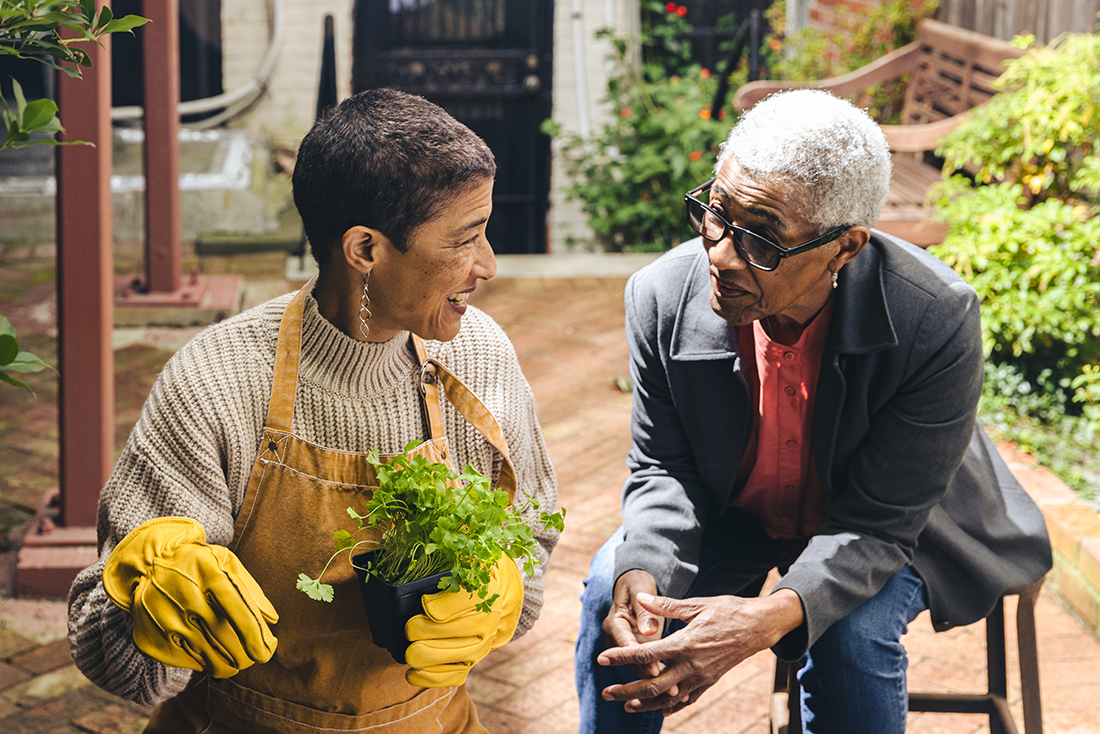Caryn Ginsberg, author, strategic planner and educator outlines her five key steps towards more effective and sustainable animal advocacy.
You’re passionate about helping animals. You see compassion for all beings as integral to your faith. Why don’t others at your church make the connection when you share your thoughts? Why is it sometimes hard to even be heard? It’s easy to feel isolated and angry.
Unfortunately, isolation and anger work against your goal to spread the word for animals. Here are five ways to engage people more effectively and make advocacy more enjoyable. While we’ll focus on vegan outreach here, you can adapt these ideas for advancing other animal issues as well.
1. SELECT the best opportunities. With the growth in veganism in the UK some people will welcome talking with you about moving to 100% plant-based eating. Others will be uninterested and even hostile. You only have so much time and energy. By spending your time with those who are more positively disposed, you can accomplish more.
You shouldn’t feel like a failure or an outcast if your faith community doesn’t respond enthusiastically. Instead you can focus on selected individuals and groups. For example, you might raise the issue with people who are –
- Health conscious
- Concerned about climate change
- Animal lovers
You may even find it more effective to participate in advocacy outside your faith community if your efforts aren’t getting results. Remember that you’re making a difference when you inspire anyone to reduce the consumption of animal products, regardless of their reasons.
Note that family and friends are often not the best people for you to try to influence. The people closest to you may feel the most threatened or judged by your veganism.
If you’re facing criticism, you’re not alone! A survey of 1,000 U.K vegans and vegetarians found that, “Half of vegans (48%) and four in ten vegetarians (39%) face disapproval or hostility from at least some of their family or friends about their lifestyle choice.”
Sarx founder Daryl Booth notes, “I have known people to have terrible fallings out with family members. It’s important to have good communication skills and strive to build healthy relationships.” He recommends Beyond Beliefs: A Guide to Improving Relationships and Communication for Vegans, Vegetarians, and Meat Eaters by Dr Melanie Joy as a helpful resource.
Within only about 1-3% of the It may be better to save your time and energy for advocacy for people who are interested …. and who you don’t have to live with if your discussions of plant-based eating create hard feelings.

2. SEARCH for common ground. Everyone wants to feel heard and respected. Unfortunately, in our zeal to help animals, we may fall into lecturing, accusing or criticizing. Think how that would work if someone approached you about eliminating driving, making sure nothing you buy was made under poor labour conditions, living a minimalist lifestyle, or some other societally beneficial action. How would you feel? Would you be persuaded? Would you be annoyed?
We need to build rapport by listening as much as we talk. You might ask someone if they’ve considered how plant-based eating aligns with Christian values. Then tune in to what they say. Can you build on beliefs they already hold? Can you relate similar thoughts in how you came to delight in bringing together veganism and your faith? Look to resources from Sarx to inform your conversations and to share with people to let them think more on their own. For those interested in a deeper exploration, Daryl recommends the free course from CreatureKind on how to lead a group discussion or the book “Vegangelical: How Caring for Animals Can Shape Your Faith” by Sarah Withrow King.
Align with people so they feel less judged. In conversations with people unaware of factory farming conditions, I’ve pointed out that most of us grew up believing that animals were raised on farms with green grass and sunshine. That shows that I’m not placing myself above them or thinking of them negatively for not knowing.
If they already have concerns about how animals are treated, but are concerned about getting enough protein, you can skip the info on factory farms and inquire if they’d be interested in sample meal plans or lists of high protein foods. You may be annoyed hearing that question for what seems like the millionth time, but for the other person, it’s a legitimate concern. Books such as “Vegan for Life” by Jack Norris and Ginny Messina can help you or the people asking questions.
Think of yourself as offering to help or guide rather than feeling that you have to persuade. Have a short list of websites or books you’d recommend to people if they’d like to learn more.
If someone’s vehemently opposed, that’s okay. Remember the first step here to select your best opportunities, and let go of that particular conversation. You can use your time and energy better elsewhere.
3. SUPPORT people where they are. Did you go vegan instantaneously after someone suggested it? That’s rare. Most people hear about plant-based eating many times before they decide to act. While some transition completely right away, many others go in stages, eliminating some food groups before others.
Since it’s unlikely that you’ll get people to go vegan from one interaction, take the pressure off them and off yourself. There are many paths that people take to become vegan. If you help someone move forward on their path, you’ve done well for the animals. Think of all vegan advocates as a team. The person you touch positively today might read that next article, listen to another advocate and change how they eat over time. You’re part of that success. At the same time, other advocates are having constructive conversations that will make people more receptive to you.
Some people may never go vegan, but you can still help animals by supporting them to eat less meat. A research study with 1,000 British adults found that “Over half of people would consider swapping at least some of the meat in their diets for plant-based alternatives. However, only 7% said they wanted to completely replace conventional meat.” Helping seven people commit to Meatless Monday results in as many meat-free meals as one vegan. Plus you’re enhancing the potential for the meat reducers to eat even more plant-based food over time.
We only fail if we discourage or alienate people. When we are critical of where they are or make it seem too hard to be worth trying, we are unintentionally setting back the cause.
Make vegetarian or vegan eating fun. If your church’s events committee isn’t interested in a speaker on Christian perspectives of animals, can you hold a vegan food tasting or offer more veg options at other gatherings?

4. SUSTAIN people in their new way of eating. Sometimes you’ll engage the right person at the right moment with the right ideas and that person does now want to go vegan. Congratulations! Your job is done.
Actually it’s not. Do you know any former vegetarians or vegans? When I ask this question at conference talks, almost every hand in the room goes up. In 2014, the nonprofit research organization Faunalytics showed that in the U.S., about 2% of the population was vegetarian or vegan, while 10% were former vegetarians or vegans. Think how different the world would be if the U.S. had 12% vegetarians and vegans rather than 2%.
Helping new-to-veg people sustain their change can have a big impact. Again, listening to where people are and where they need assistance lets you channel your available time and energy in a more effective and rewarding way. Does someone have health concerns, dislike the food, face social pressures, or report some combination? You can suggest different ways to address these problems.
In addition to offering assistance one-on-one, you might bring experienced and new vegetarians and vegans together. Are there enough in your church for you to start a group? If not, would there be sufficient interest to start a group locally?
5. SHINE your light. You are an ambassador for animals. If you’re known to be vegan or an advocate, many people will make generalizations about all vegans or animal advocates based on their experience with you. It’s, therefore, important to be friendly and polite as much as possible. That doesn’t mean sugar-coating hard truths, but maintaining a positive relationship with others when engaging them as individuals.
You might wonder how you can be calm when there’s so much animal suffering, and you’re talking with someone who doesn’t get it or disagrees. In order to shine your light to illuminate animal issues and inspire others to change, you’ve got to keep the glow inside. Self-care is crucial to be an animal advocate for the longer term.
Your faith community can be a source of strength, even if it’s not the best place for your advocacy. You can also consider prayer, meditation, walks in nature, music, art, time with family and friends, veg groups (in-person and online) and other ways to rejuvenate.
Be in it for the Long Haul
Caring about animals can be hard. Your passion for animals may upset people rather than engage them. When they reject your heartfelt pleas, you may feel anger, despair, or even self-loathing.
The steps here –
- SELECT the best opportunities,
- SEARCH for common ground,
- SUPPORT people where they are,
- SUSTAIN people in their new way of eating, and
- SHINE your light
… can help you get the results that you want and that the animals deserve. They can also make your advocacy experience more positive, so you’ll continue your important work over time and have growing impact in the future.
Tom Regan, author of numerous influential books on the philosophy of animal rights, including The Case for Animal Rights, gave a talk at the 125th anniversary of the American Anti-Vivisection Society (AAVS) entitled The Seed Never Sees the Flower. He explained that, “just as the seed will never see the flower it is destined to become, today’s animal advocates may never see the idyllic world for which they strive. The pace of change might be frustrating at times, but we should feel assured that our efforts will someday blossom and lead to a more just world for all animals.”
Caryn Ginsberg is author of Animal Impact: Secrets Proven to Achieve Results and Move the World and has spent more than a decade helping animal protection advocates utilise proven strategy and marketing approaches to get better results. Caryn’s teaching experience includes social marketing, marketing, and strategic management courses for Johns Hopkins University and Humane Society University. For more information about Caryn’s work, check out her website.




